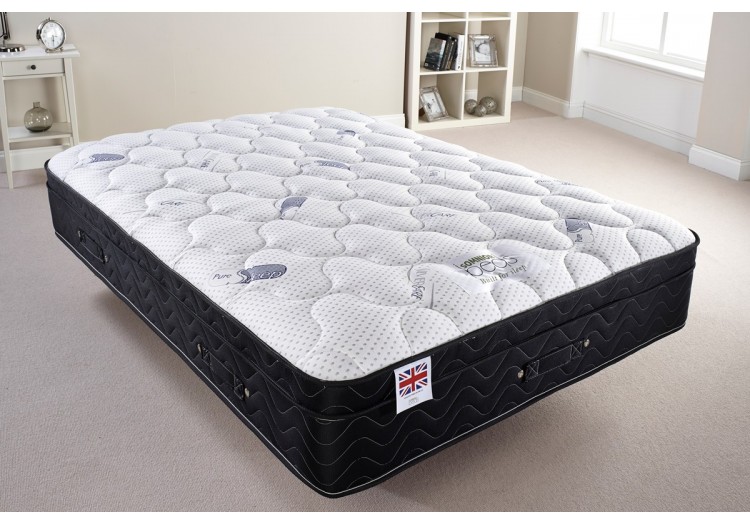It can be difficult to know when you should replace your mattress, many of us become accustomed to our regular mattress and might not realise if it’s past its best or not performing as it should.
If you wake with aches, with no feeling of being refreshed or invigorated from a night’s sleep, then it might be time for a change - particularly if you find yourself stuck in a dip in the middle of the bed, feeling far from relaxed and comfortable!
Below, we’ve put together a short mattress replacement guide, so you can feel fully informed if you’re thinking the time might be right for a new mattress and a perfect night’s sleep. We also introduce some of the different mattress types available at Next Divan.
Why you should replace your mattress
A mattress that’s way past its use-by date results in poor-quality sleep, which is strongly associated with high levels of stress levels and a weak immune system, as well as contributing towards obesity. As a mattress ages and sags it can no longer support your body effectively, leading to back and neck pain with dips in support across the depth of the mattress.
When is it time for a change in mattress?
The UK Sleep Council recommends your mattress is changed after more than 20,000 hours of use, which equates to around seven years of sleeping on it. As mattress technology continues to develop, newer designs and materials are extending the recommended product lifetime to 10 and even 20 years though! How well you look after your mattress is also a factor which will determine when you need to replace it.
What mattress signs should I look out for?
If you bought your mattress around five years ago, now is the time to start taking note of its condition. Look for visible tears, holes, stains or lumps, and listen out for creaks or pings – all this might seem obvious, but these are some of the most reliable signs that buying a new one is overdue.
You may be waking up feeling tired and in pain on a regular basis, which means that your mattress is no longer supporting your body effectively while you sleep. If you are tossing and turning during the night, this is also a common sign that your mattress is not in peak condition. It’s important to recognise that changes to our body, such as gaining a few extra pounds, can significantly affect the performance of a mattress.
The longer you own a mattress, the more it can harbour a collection of dust and dead skin cells, as well as dust mites and possibly bed bugs. Certainly, if you have noticed that you increasingly suffer from the symptoms of allergies and asthma when you go to bed, investing in a new one should improve things.

What’s the best mattress for me?
Here, at Next Divan, we offer three main types of mattresses:
- Orthopaedic mattresses are designed to relieve painful pressure points, making them ideal for sleepers with back and joint issues.
- Available in different comfort grades, pocket spring mattresses are recommended for sleeping partners of different weights or firmness preferences.
- Memory foam mattresses react to body heat, ensuring a highly personalised and an end to waking up achy, stiff or numb.
Check out our website today for more information on our fantastic range of mattresses. We also offer free delivery to most UK mainland postcodes.




